How to lead a waste-free lifestyle
Zero-waste, or waste-free living, is more than a trend. It's a lifestyle that's growing more and more with increasing concerns about global warming. According to Bea Johnson, a leading figure in the field, there are five rules for the zero-waste lifestyle, which are denoted by 5 Rs in English. The five rules are the following:
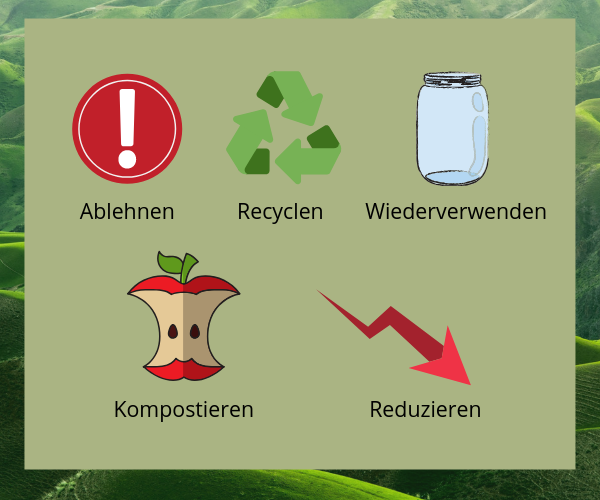
It may seem difficult and time-consuming, but in reality, it's all about some strategic changes. Here's the ultimate guide to a zero-waste lifestyle in your everyday life.
Waste-free kitchen
First, change the way you shop. Some shops offer you the opportunity to bring your own glass containers or cloth bags to buy pasta, dried fruit or beans, for example. This allows you to determine the amount of product you need while reducing your plastic consumption. To help you find these types of stores in your area, which can sometimes be difficult, here is a web page that allows you to search for all the available wholesale markets by city map of stores.
.png)
Another easy way to contribute is to store your food differently. There are a variety of ways to do this without plastic. You can use mason jars and cloth bags to store certain dried products such as pasta, flour, and beans. You can also use bee wrap, an organic cotton enriched with beeswax, to pack your vegetables.

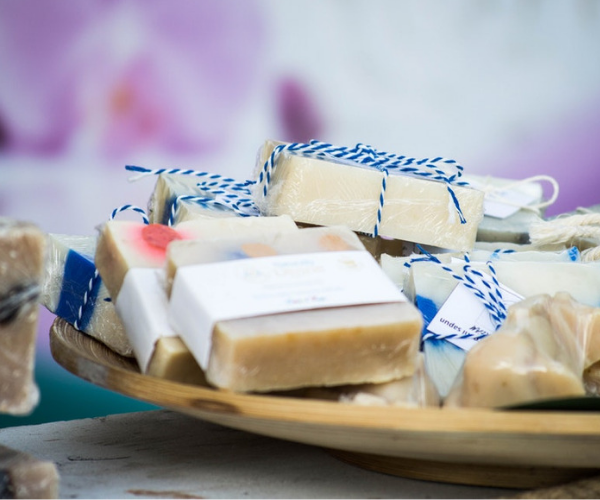
The composting process
Even if it is not one of the most glamorous tasks, zero-waste also means taking care of what cannot be avoided, namely food waste (vegetable peels, etc.). According to Arc-info, Switzerland has been in third place in the list of countries that generate the most waste in Europe since 2019.
Each person living in Switzerland generates an average of 700 kg of waste per year. This corresponds to 280 standard waste bags (35L) at a cost of CHF 560 per year for a family of four. However, 30% of the waste thrown into the general waste bins is actually organic waste. Theoretically, you could save 170 francs per year by separating your waste more efficiently.
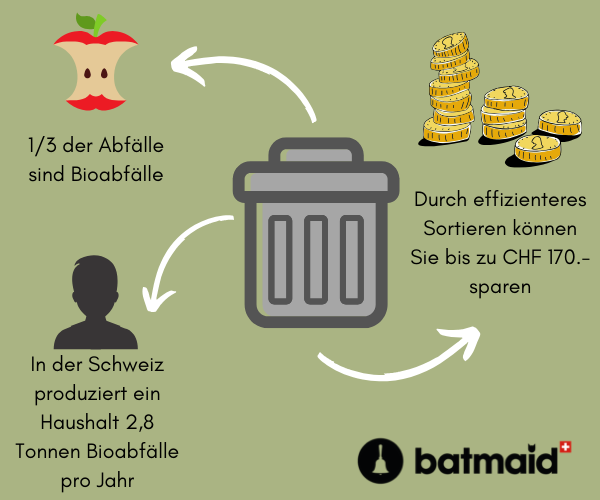
There are special waste bins for organic waste, but with the help of a composter, you can even make your own compost at home. They are available in all shapes and sizes, according to your needs, whether for your balcony or your garden, for every budget (from CHF 14.- to CHF 200.-). If you have a green thumb, composting allows you to make your own fertilizer for your small garden.
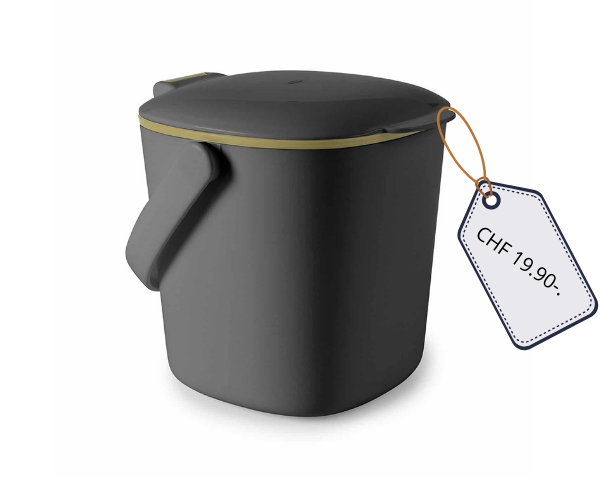
You can also store your organic waste in a paper bag in your freezer – this method will keep unwanted odors away.
Zero waste at work and on the go
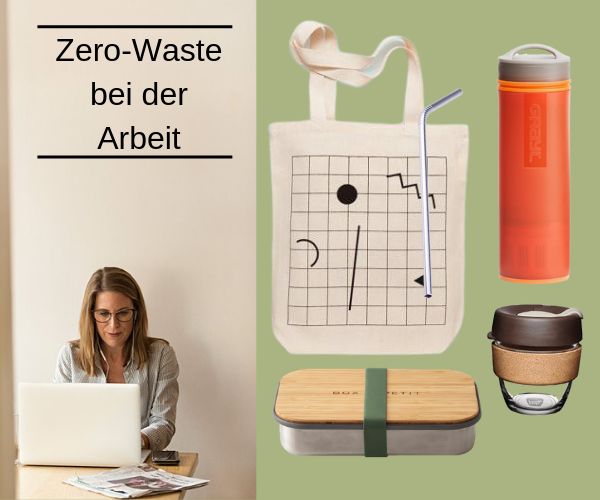
There are also some alternatives that can contribute to a waste-free lifestyle at work. The most impactful of these is to change your drinking habits by replacing your usual plastic bottle with a reusable water bottle like a Grayl bottle. This is both stylish and useful, as it also serves as a water purifier.
Coffee lovers and tea drinkers can bring their own drinking cup to the coffee shop instead of using disposable cups. It may only be one cup a day, but in the long run, it makes a difference. If you like to drink your drink with a straw, you can use a bamboo or stainless steel straw instead of plastic. These new straws are reusable, practical and hygienic.
In addition, you can bring your own food to work in stainless steel lunch boxes. This way, you avoid the plastic waste that comes from buying takeaway food and you save a lot of money over time. It's cost-effective, healthy and sustainable!
.png)
To complete the whole, you can bring all of this to work in a cotton tote bag. There are a variety of sizes, patterns, and colors. You can find them in stores or on the internet, for example on etsy, where bags with unique and original designs are sold!
Living waste-free may seem difficult, but don't worry! If you're ready to do your part, start small. Good luck!
If you have your own little zero-waste tips, don't hesitate to share them with us in the comments.
Post a Comment for "How to lead a waste-free lifestyle"